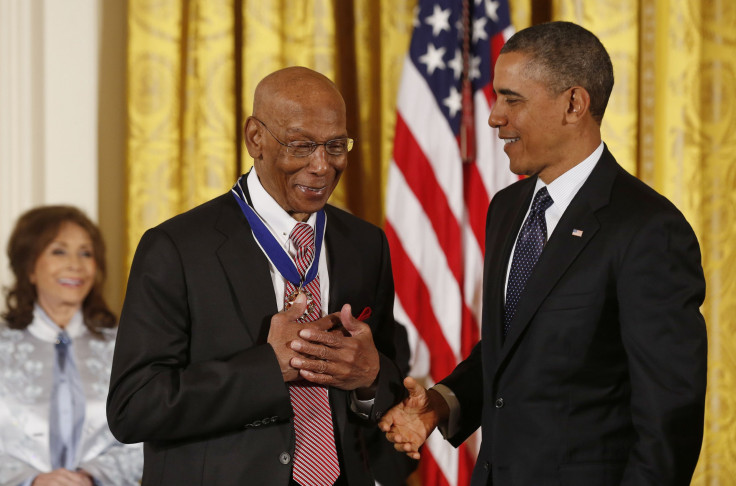
The sport of baseball lost an icon on Friday as the world learned that the legendary Ernie Banks had died. He was 83 years old.
Banks died in Chicago surrounded by family, but their attorney, Mark Bogen, said his death “was not expected.” He also announced that a press conference with the family has been scheduled for Sunday morning.
Banks is arguably the greatest Chicago Cub of all time. The Hall of Fame outfielder played for the Cubs from 1953-1971 and was the first African-American player in the history of the Cubs organization. Banks began his career in the Negro Leagues with the Kansas City Monarchs in 1950, before joining the cubs a few years later.
Banks hit 512 home runs over his illustrious career and was nicknamed “Mr. Cub” after being inducted into the Baseball Hall of Fame in 1977. He was an 11-time All-Star and was named the “greatest Cub ever” in 1969 by the Chicago Sun Times.
“Words cannot express how important Ernie Banks will always be to the Chicago Cubs, the city of Chicago and Major League Baseball,” said Tom Ricketts the Cubs Chairman. “He was one of the greatest players of all time.”
Most recently, the White House honored Banks in 2013 when Chicago native, President Barack Obama awarded him the Presidential Medal of Freedom.

“To have this award passed on to me is certainly a great joy,” he said at the time. “It’s something I’ll never forget.”
President Obama released a statement after hearing of Banks passing.
“Ernie came up through the Negro leagues, making $7 a day,” he said. “Along the way, he became known as much for his 512 home runs and back-to-back National League MVPs as for his cheer, optimism, and his love of the game.
“As a Hall-of –Famer, Ernie was an incredible ambassador for baseball, and for the city of Chicago. He was beloved by baseball fans everywhere, including Michelle, who when she was a girl, used to sit with her dad and watch him play on TV.”
“.@MLB: The Wrigley Field marquee pays tribute to Mr. Cub on this somber night. pic.twitter.com/fppoyDDWyN” ⚾️
- Eric Roberts (@dgaEric) January 24, 2015© 2025 Latin Times. All rights reserved. Do not reproduce without permission.




